Lichen Planus Specialist Advice
Home » Conditions » Lichen Planus Specialist Advice
Award winning dermatology service, with over 20 years on experience
Short waiting lists, on some occasions offering same week appointments
Safe environment, in Care Quality Commission approved facilities
Lichen Planus Treatments Include:
Everything you need to know From a lichen planus specialist
Lichen Planus is a relatively common condition characterised by an inflamed, extremely itchy rash that can affect many different parts of the body. The most commonly affected sites include the wrists, ankles and lower back. Other areas such as the mouth, genitalia, nails and scalp are also affected. It is usually seen in adults over the age of 40 and is not known to be a hereditary condition. It is not infectious, and both men and women are equally susceptible.
WHAT CAUSES LICHEN PLANUS?
Unfortunately, it is still not known what causes this disease to occur, though there is some evidence to suggest that it could be caused by a malfunction in the body’s immune system. Lichen Planus is not contagious. There has been research showing that this condition can be triggered by the flu vaccine, hepatitis C infection and certain pigments, chemicals and metals. Some drugs including pain relivers and medication for heart disease, high blood pressure and arthritis can also cause a temporary Lichen Planus-like rash to develop which resolves slowly once the offending medication is stopped.
WHAT ARE THE SYMPTOMS/TYPES OF LICHEN PLANUS?
There are many different forms of lichen planus which differ in appearance and the parts of the body they affect. Typically, Lichen Planus appears as multiple purple/red shiny, flat-topped bumps that form on the skin in a symmetrical distribution across the body. As the individual bumps heal they change colour from red to purple, then to grey or brown. Sometimes there is scale on the surface of the bumps. Lichen Planus can form in line-shaped (linear) or ringlet-shaped (annular) areas and sometimes appears in scars. Common symptoms you may experience depending on where your condition affects you are:
- Itching
- Blisters which then scab over
- Painful sores in the mouth
- Purple flat bumps
- Hair Loss
- Nail damage
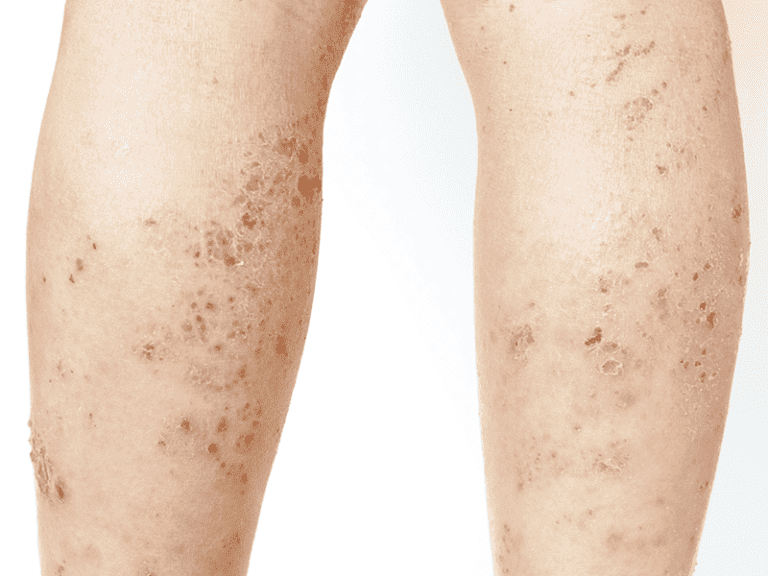
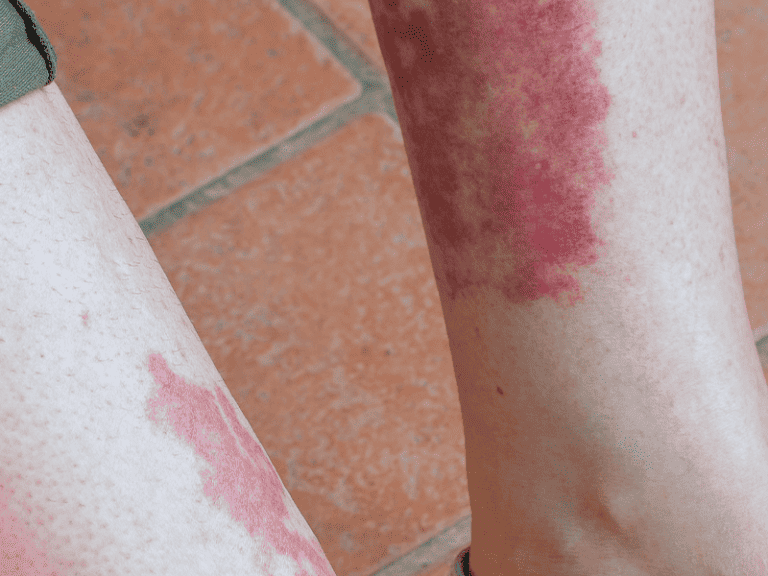
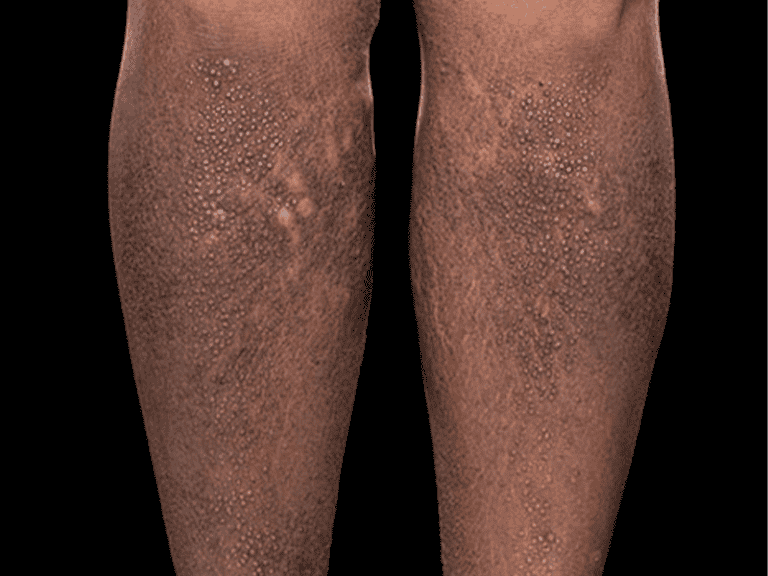
HOW CAN LICHEN PLANUS BE TREATED?
Unfortunately, no treatment has been found to cure Lichen Planus but thankfully in most patients it will resolve by itself within 1-2 years. However, about 20% of patients experience a recurrence, which can be many years after the initial episode. The aim of treatment is therefore to control symptoms.
Creams and ointments can be used to control the rash and alleviate the need to itch the rash and in more severe cases steroid tables can be used. Phototherapy, an LED light therapy, can be effective treatment for lichen planus, exposing the skin to ultraviolet light and producing a healing response.
FREQUENTLY ASKED QUESTIONS
WHAT IS THE MAIN SYMPTOM OF LICHEN PLANUS?
Itching is the key symptom that affects people with Lichen Planus. The appearance of the rash can be distressing for some, especially if it occurs in intimate areas such as the genitalia. Furthermore, as the skin lesions heal, darkly pigmented blemishes may appear in their place which can take months or even years to resolve, particularly in those with a darker skin tone. If Lichen Planus occurs on the scalp it can lead to patchy hair loss which may be permanent. Pitting, ridging or complete detachment of the nails eroded by LP can also look unsightly.
HOW CAN I HELP ALLEVIATE SYMPTOMS AT HOME?
- Avoid using soaps or body washes and just wash using warm water
- Wash your hair over a sink or bath so the shampoo doesn’t come into contact with your skin
- Use an emollient on the rash
- Avoid wearing tight clothes that rub against the skin
- If in the mouth, brush your teeth carefully and keep your gums healthy and avoid salty, spicy and acidic foods as well as alcohol
IS LICHEN PLANUS CONTAGEOUS?
No, lichen planus is not contagious. It occurs when the immune system attacks cells of the skin.
HOW DO I KNOW IF LICHEN PLANUS IS HEALING?
As this condition heals, it often leaves a dark brown discolouration of the skin. These will eventually fade over time.
REQUEST A CALL BACK
Please fill in this form and one of our team will give you a call back to arrange a consultation with one of our expert dermatologists.
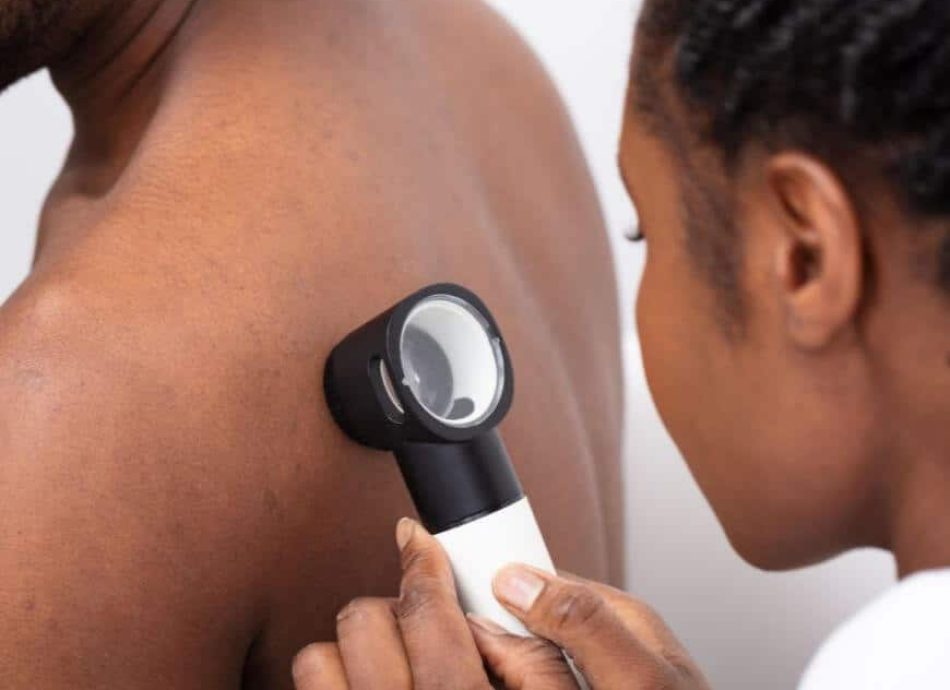
HEAR FROM OUR PATIENTS
WHY CHOOSE LICHEN PLANUS TREATMENT FROM STRATUM DERMATOLOGY CLINICS?
Lichen Planus is a common skin condition and we understand the impact that severe rashes can have on daily life.
We work with leading lichen planus specialists to ensure you have the best experience and treatment. Stratum Dermatology Clinics are regulated by the Care Quality Commission, are part of the British Association of Dermatologists and are top rated by patients on Doctify so you can assure safe and effective acne treatment with us.
OXFORD
Stratum Clinics Oxford
Unit 3, Origin Place
Wootton Science Park
Besselsleigh Road
Wootton
Abingdon OX13 6FD
0800 048 9230
WIMBLEDON AND RAYNES PARK
Stratum Clinics Wimbledon & Raynes Park
Raynes Park Health Centre
1 Lambton Road
Wimbledon
SW20 0LW
latest INSIGHTS AND ADVICE

Guide to Fall Skin Conditions
Autumn, with all its stunning colours, also brings some challenges for our skin. As the air gets cooler and the leaves turn vibrant shades, it’s a reminder that we’re steadily approaching winter. Keeping your skin glowing and healthy during this transition from summer to the
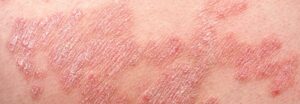
Eczema Awareness Month – Complete Guide on Eczema
October is Eczema Awareness Month. For individuals living with eczema, you will be all too familiar with the trials of handling this skin complaint. It’s our mission throughout October and beyond to educate, support and empower you by delivering invaluable insights on its origin, available
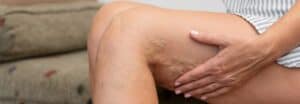
Understanding Varicose Veins: Symptoms, Treatments and Prevention
Varicose Disease Awareness Month focuses on raising awareness about varicose veins, a common but often ignored condition affecting millions globally. This September, we’re highlighting the importance of early detection, available treatments and lifestyle changes to effectively manage varicose veins. By increasing awareness, we aim to